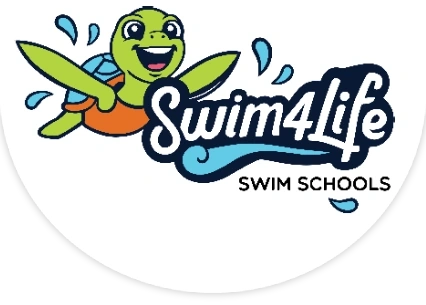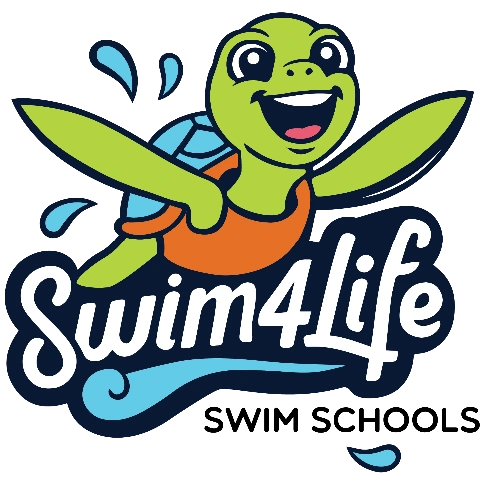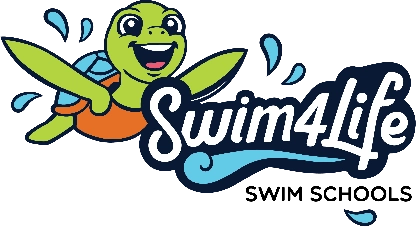Here in Tarneit and Williams Landing, spending time at local pools or the beach is a natural part of family life. For children, swimming lays the foundation for lifelong confidence, resilience, and safety in and around water.
Early swimming lesson also helps your child develop physical ability, social awareness, and a love for active living. Therefore, the five benefits below highlight why starting early baby swim classes is one of the most valuable gifts you can offer your child.
Why Start Swimming Lessons Early
We often see how children who begin their swimming journey at a young age grow into confident and capable swimmers much faster. Early lessons set the pace for lifelong water safety education and enjoyment. Here are some of the key reasons why starting early makes a significant difference.
- Introductory swim classes help your infant or toddler become familiar with water and develop a natural confidence.
- Skills like safe pool entry, floating, turning, and reaching the edge become instinctive when taught early.
- By combining safety skills with fun activities, your child learns that the pool is a safe and rewarding space, rather than something to fear.
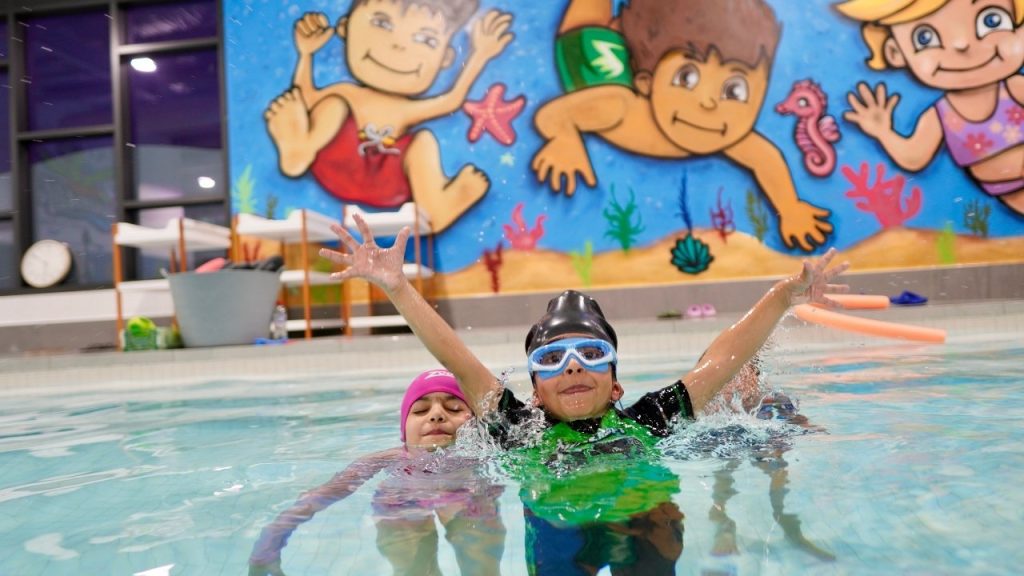
Best Age to Begin
The earlier children are introduced to the water, the easier it is for them to develop essential safety skills. According to experts, such as the American Academy of Pediatrics, Swim Australia, and the Red Cross, the best age to start formal swimming lessons is between 1 and 4. However, at Swim4Life, we welcome babies from as young as 6 months in gentle, parent-and-baby water sessions.
These initial sessions are designed to promote bonding, safety, and familiarity. They also encourage natural skill progression as your infant grows, helping them to easily transition from assisted movements to independent swimming basics.
5 Life-Saving Benefits of Starting Swim Lessons Early
Beyond the joy of splashing, early water exposure equips your child with essential survival skills and promotes overall development. Here are the five life-saving advantages of early aquatic training:
1. Early Water Safety Skills
One of the greatest gains of an early swimming lesson is the development of instinctive safety responses. As mentioned, water is part of our life here in Tarneit and Williams Landing. That means our children need to learn how important water safety education is to help them develop survival skills for emergencies. Learning to float, turn or reach for the pool edges also enables them to gradually build life-saving muscle memory.
Drowning contributes to the high number of water-related deaths, especially in home pools and open water. Therefore, developing reflexes above significantly reduces the risk of drowning, as the body responds naturally even in unexpected situations.
2. Reduces Fear and Builds Confidence
Structured and playful beginner swim instruction transforms water anxiety into excitement. By introducing swimming in a gentle and supportive way, your child develops trust in themselves and their environment. This acquired confidence carries over into school, social settings, and other activities.
Introducing swimming early also supports long-term comfort and prevents negative associations. For instance, your toddler becomes emotionally secure when guided by trained swim teachers. Over time, they develop the ability to face new challenges independently, which is one of the most valuable outcomes of early swim classes.
3. Stronger Physical Development
Swimming is a critical activity that supports the child’s physical development. Initial swimming instruction engages vital muscle groups in the arms and legs. It also supports neuromuscular function, leading to better balance and coordination, improved flexibility, and a stronger core.
Swimming is a gentle exercise that enhances cardiovascular health. Through structured swim classes, your child experiences improved heart’s ability to deliver oxygen-rich blood throughout the body. This increases respiratory endurance and reduces the risks of heart disease. Swimming also improves lung capacity, leading to boosted maximum oxygen uptake over time.
4. Improves Listening and Safety Awareness
One often overlooked value of toddler swim training is the boost in listening and self-awareness. Safety is always a priority when it comes to water activities, and that means children need to pay attention to instruction and their environment to achieve this. Therefore, by learning to follow instructor guidance and respect pool rules, your child develops discipline around water.
Swimming also teaches children the ability to notice potential risks, such as slippery edges or deep-water zones, and to respond appropriately. This awareness ensures they understand that water is always fun, but must always be approached with caution.
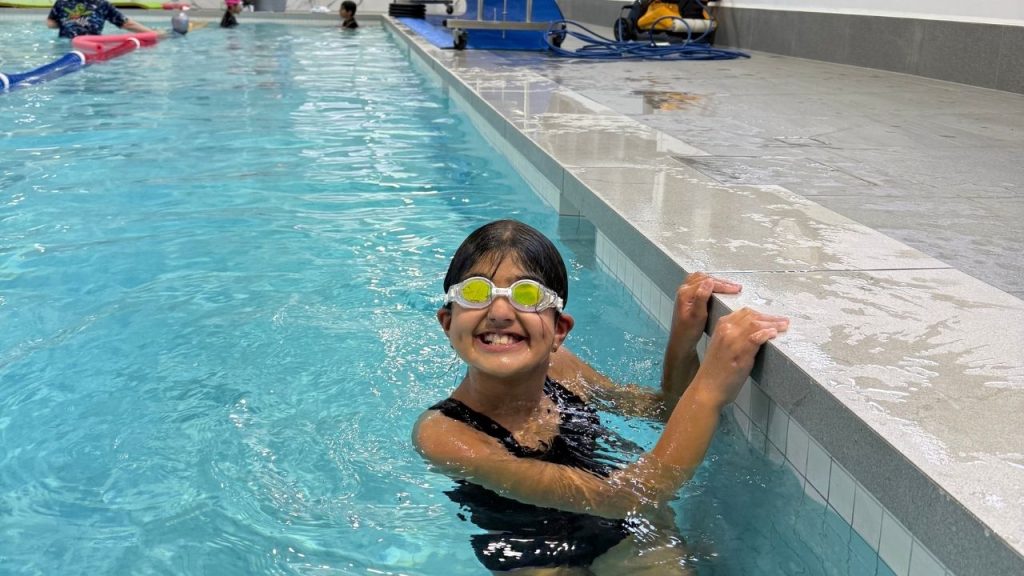
5. Lifelong Love for Swimming
Preschool water experiences ensure that swimming becomes more than just a survival skill – it evolves into a lifelong passion. When children associate water with joy, achievement, and social interaction, they are more likely to continue participating in aquatic training as they grow. This ongoing engagement keeps them active, healthy, and socially connected. That is true whether it is through casual swimming, surf lifesaving, or competitive training.
Safety Considerations for Young Swimmers
Early swim classes lead to positive effects like boosted confidence and essential survival skills. However, professional guidance and the right environment remain the top priorities. Below is how to a create a safe and positive atmosphere that allows your child to enjoy swimming while remaining protected.
- Ensure constant adult supervision, regardless of the child’s swimming ability, to prevent accidents.
- Ensure lessons are led by qualified instructors with child-first methods to promote child comfort and trust.
- Emphasise safe, age-appropriate facilities, such as warm, mineral-heated pools, and a hygienic environment.
- Introduce each skill gradually to maintain enjoyment and confidence, and ensure steady progress without pressure.
Begin Your Child’s Swim Journey with Swim4Life
Enrolling your child in early swimming lessons provides a lifelong foundation of safety, health, and confidence. At Swim4Life, our programs begin with baby and toddler classes from as early as six months. Our small class sizes of just four children per session also offer maximum attention.
Moreover, we have warm, mineral-heated pools designed to make learning comfortable and enjoyable from the very first splash. Book a trial lesson today and see how Swim4Life can help your child develop life-saving skills, right from the beginning.
